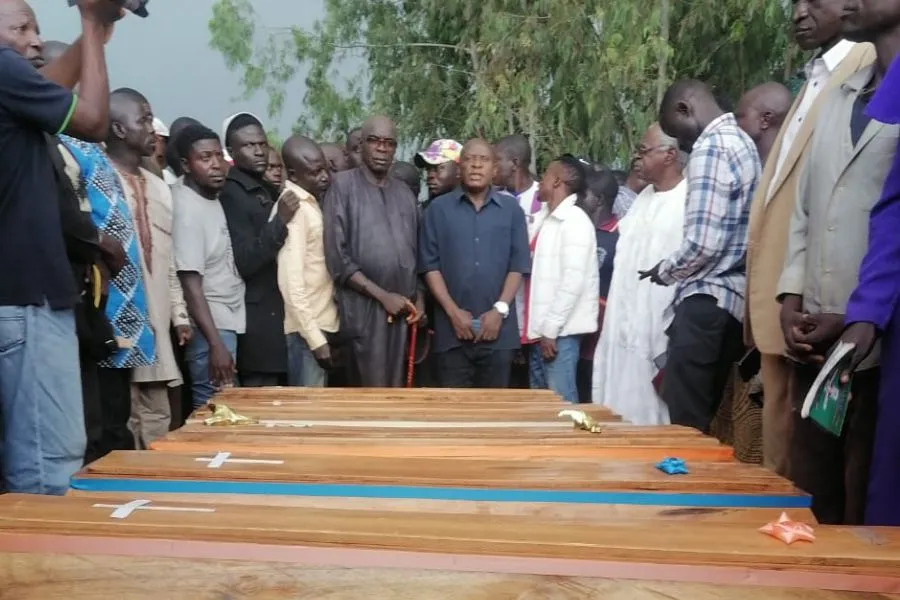Jos, 02 August, 2023 / 9:35 pm (ACI Africa).
An incident that happened recently in Riyom Local Government Area of Nigeria’s Plateau State where Fr. George Barde had gone to conduct a mass burial of victims of Fulani attacks opened the eyes of the locals, especially Christians, to a harsh reality: that they are on their own, faced with the raging Islam jihad in the West African country.
It started when two young men who were keeping vigil at the wake were shot; one in the leg and the other in the buttocks.
“The Fulanis were hiding in the bushes and they saw the light from a fire that the boys who were keeping vigil had lit. From their hideout, they shot the boys. The one who was shot in the leg managed to run to the settlement to relay the news that the people were under attack,” Fr. Barde narrates to ACI Africa.
An ambulance was immediately called to rush the two injured men to hospital. Seven men on the vehicle were attacked and killed in what was reported as one of the most gruesome attacks in Riyom happening on a day of a mass burial.
“What got locals surprised the most was that when the gunmen fled after shooting the seven men, they went in the direction of a military post located just about two kilometers from the settlement that had been attacked. The gunmen didn’t run in any other direction because they would have been killed. Instead, they ran towards the military post, passed a checkpoint, and disappeared,” Fr. Barde, the priest in charge of St. Laurence Catholic Parish Riyom in Nigeria’s Archdiocese of Jos says, adding that five of the seven men were members of his parish.








